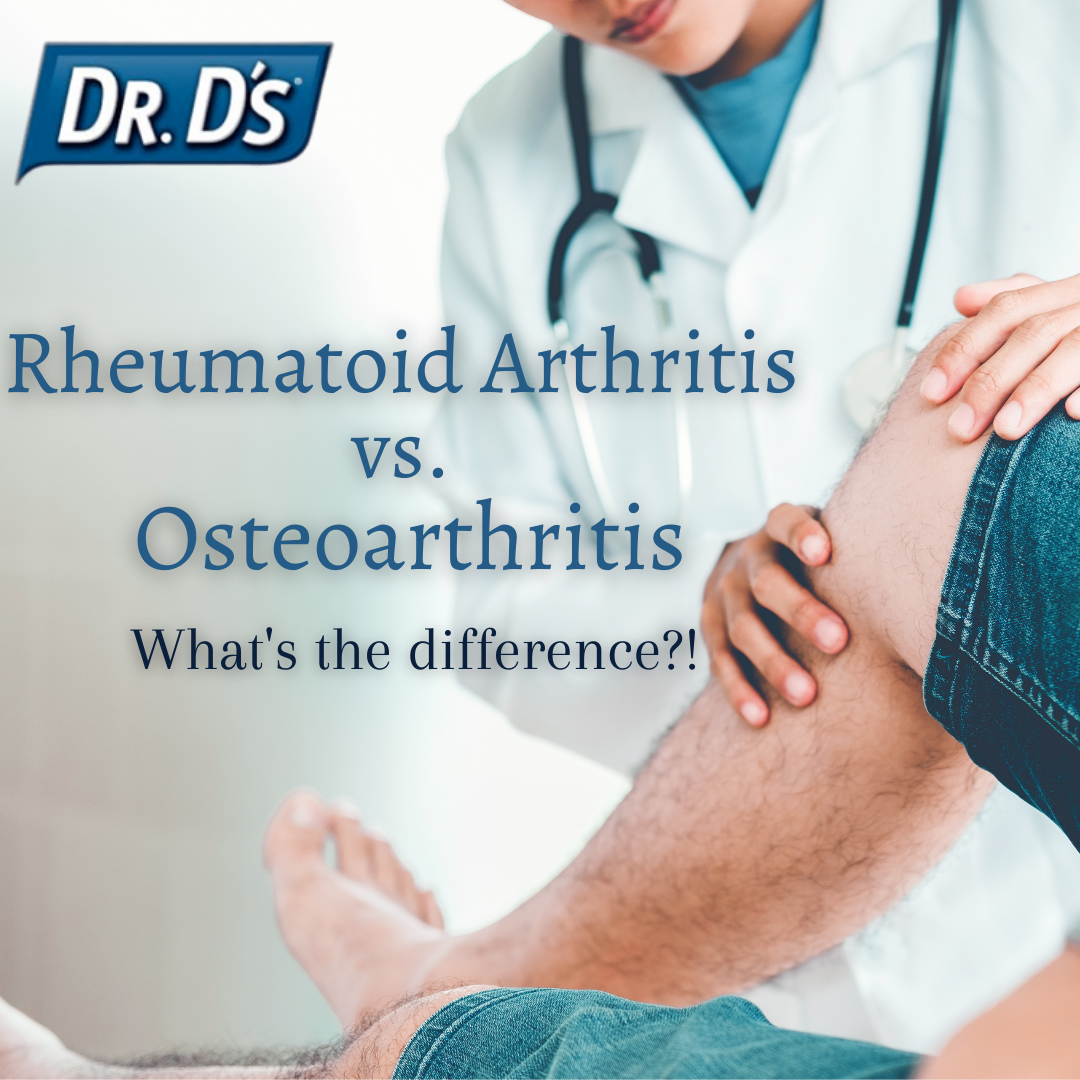
Osteoarthritis vs. Rheumatoid Arthritis: What is the difference?!
Share
Arthritis is a term used to describe joint inflammation, however there are MANY TYPES of arthritis.
A common source of confusion we see in practice is between two common types of arthritis: osteo- and rheumatoid.
Perhaps the easiest way to explain the distinction is to separate the differences into categories:
Causes
|
Osteoarthritis: A Degenerative Joint Disorder |
Rheumatoid Arthritis: An Autoimmune Disorder |
|
This is a breakdown of the cartilage that protects the joints. Cartilage is important as it allows the bones of the joint to move easily against each other. Its breakdown causes the bones to approximate and eventually rub together. This leads to inflammation, pinching of nerves and other structures, pain and lack of mobility (stiffness). |
An autoimmune disease is when the immune system mistakenly attacks normal body tissue, as if it is some sort of threat. In the case of Rheumatoid Arthritis, the body mistakenly thinks the lining around the joints (synovial fluid) is a threat (like a virus, for example) and attacks it. This causes inflammation, pain, lack of mobility and destruction of the joint that can lead to deformity. |
Risk Factors:
|
Osteoarthritis: “Wear and tear” |
Rheumatoid Arthritis: Spontaneous |
|
|
Symptoms:
|
Osteoarthritis: Localized |
Rheumatoid Arthritis: Diffuse |
|
Pain is limited to the affected joints (overall bodily symptoms are uncommon). Stiffness is usually worse in the mornings or after inactivity. Pain is asymmetrical: can have pain in both knees but one is usually worse than the other |
Rheumatoid Arthritis is a full-body disease. As a result, may not only affect the joints but can also cause lung, heart and eye issues. Can also be accompanied by:
Pain is symmetrical: experienced on both body parts (ie. knees) at the same time.
|
Both experience pain, stiffness and inflammation around the joints.
Treatment
|
Osteoarthritis |
Rheumatoid Arthritis |
|
Normally, anti-inflammatories are prescribed in both cases but in RA, the treatment may also involve immunosuppressants to help stop the body from attacking the joints. Conservative care such as chiropractic and massage therapy along with exercise and supplements such as turmeric can also help in the management of these conditions. |
A little more about turmeric. Turmeric has been associated with the following health benefits:
Turmeric has been shown to support natural pain relief:
Turmeric has been associated with helping to relieve the pain and discomfort associated with a variety of health conditions, such as arthritis, back pain, fibromyalgia, headache, joint pain, muscle pain, neck pain, osteoarthritis, rheumatoid arthritis, sports pain and many other painful conditions.
Turmeric has been shown to reduce inflammation:
Part of your body’s immune response, inflammation is how your body protects itself and starts the healing process after an infection or injury. Without an inflammatory response, infections, injuries (even minor ones), and any damage to tissue would not be able to heal. However, chronic (in other words, maladaptive or long-standing) inflammation has been associated with the development of several diseases over time and turmeric’s chemical properties have been shown to help reduce such chronic inflammation. Additionally, turmeric has been associated with preventing the onset of chronic disease and even preventing inflammation from becoming chronic. It is a potent natural anti-inflammatory medicine.
Turmeric has been associated with Arthritis support:
Rheumatoid Arthritis is a painful autoimmune and chronic inflammatory disorder that causes inflammation of the joints and can lead to mobility issues. Osteoarthritis is another common type of arthritis. It is not an autoimmune disorder; however, inflammation plays a role in this condition as well. The main symptoms of arthritis are stiffness, swelling, redness and joint pain, which typically get worse with age. Turmeric’s antioxidant and anti-inflammatory properties are believed to remedy oxidative stress, which has been associated with the degradation of cartilage in both rheumatoid arthritis and osteoarthritis.
Dr. D's turmeric curcumin supplement, Ultra BioTurmeric, has been clinically proven in a randomized, double-blind, placebo-controlled study to significantly reduce inflammatory blood markers and pain reports in patients with active Rheumatoid Arthritis?! With a dose as low as 2 turmeric capsules per day! Check out the published study here.